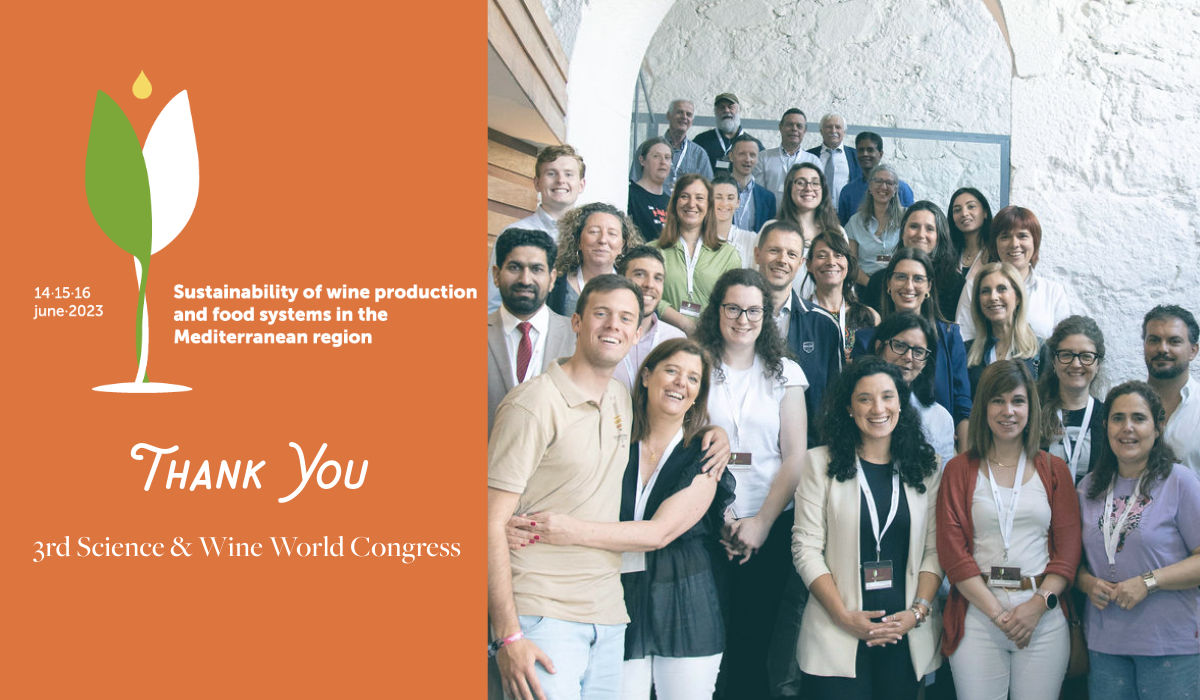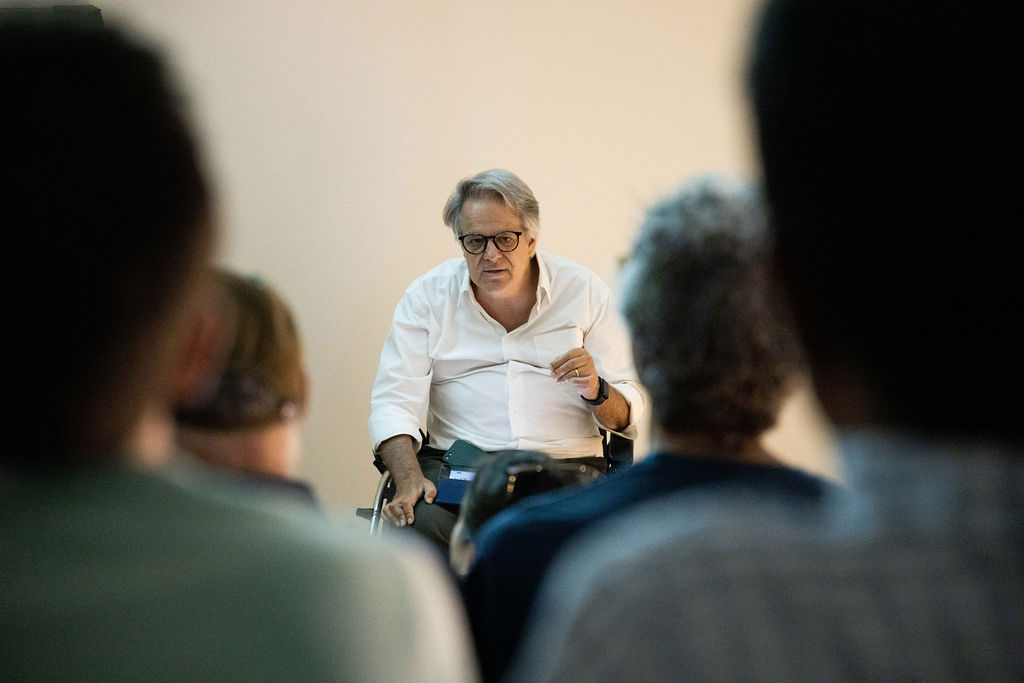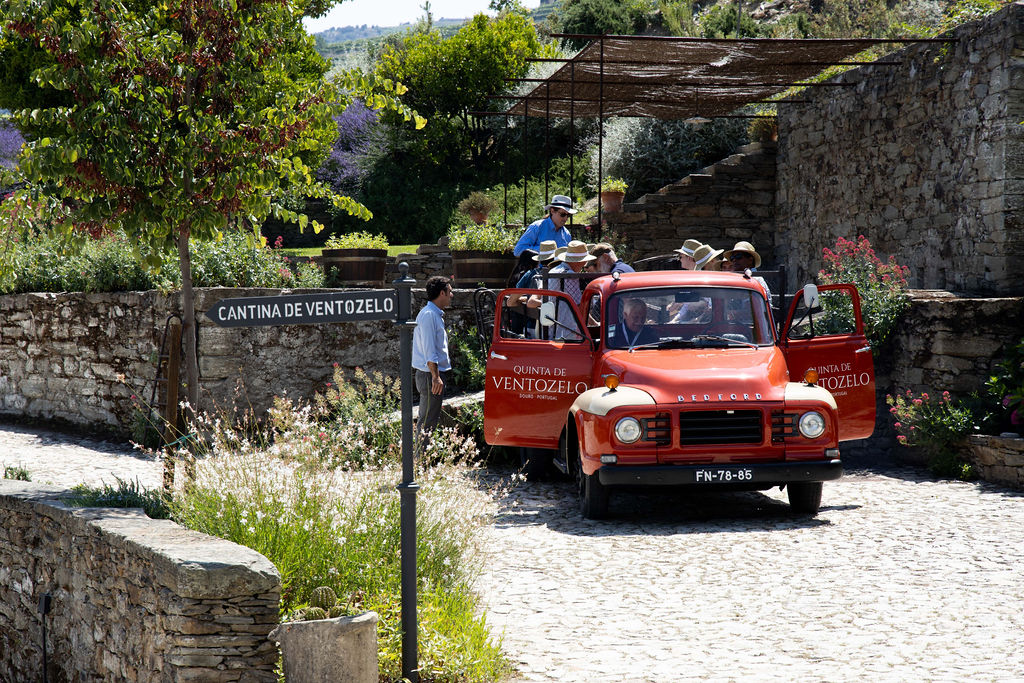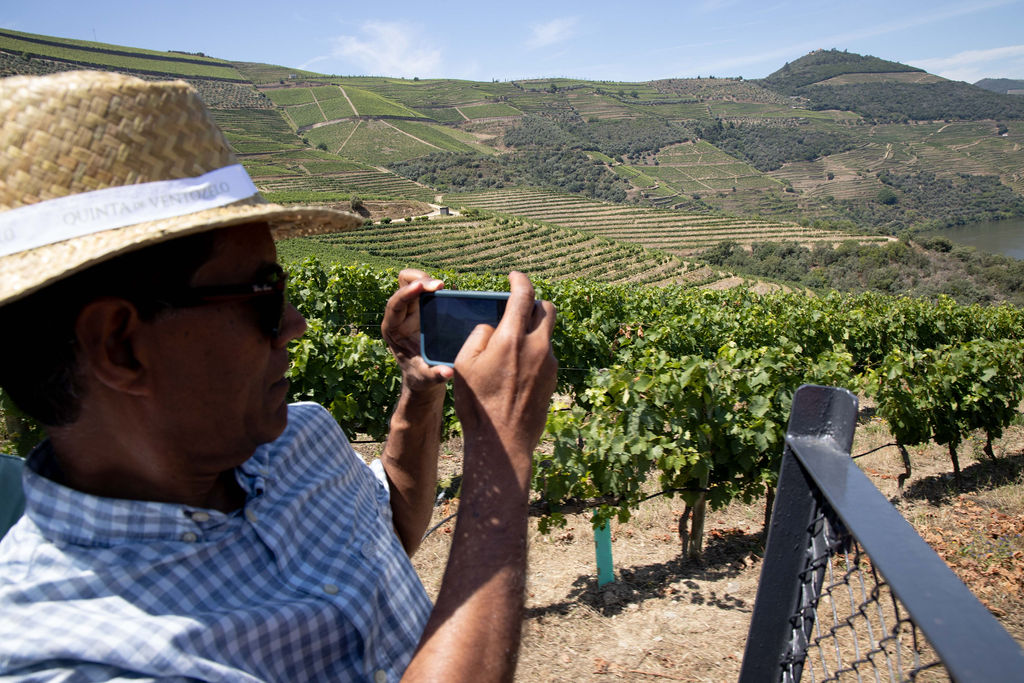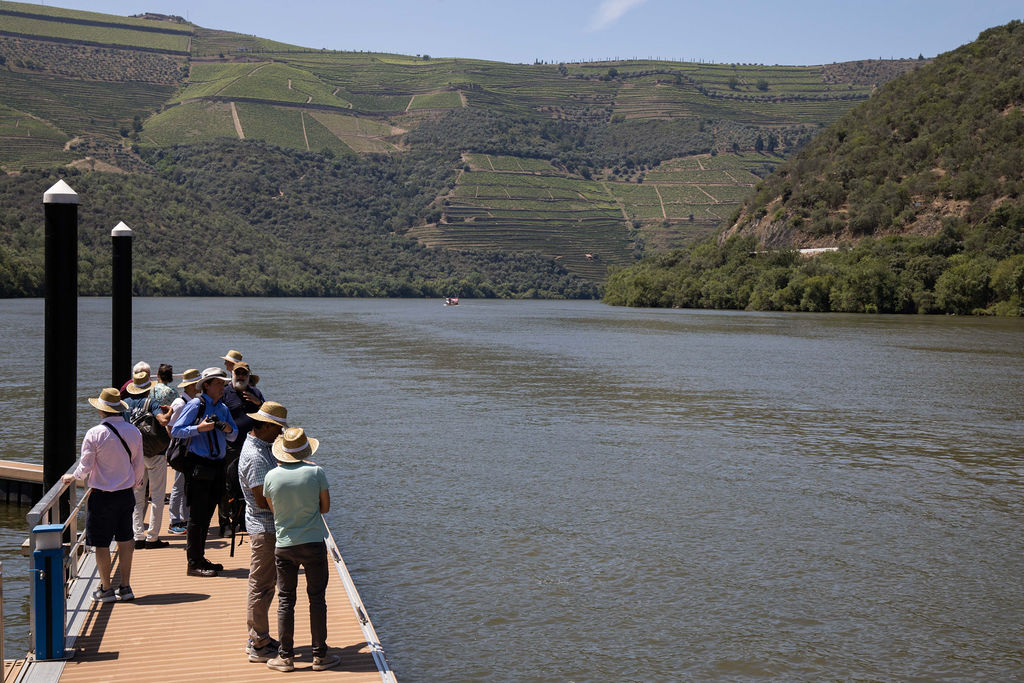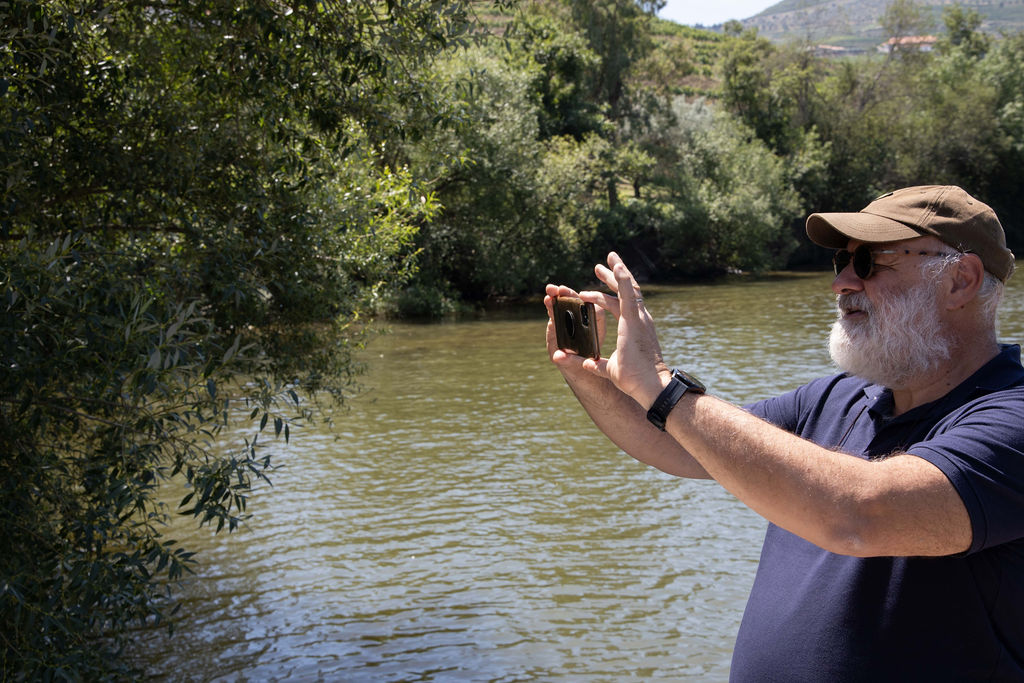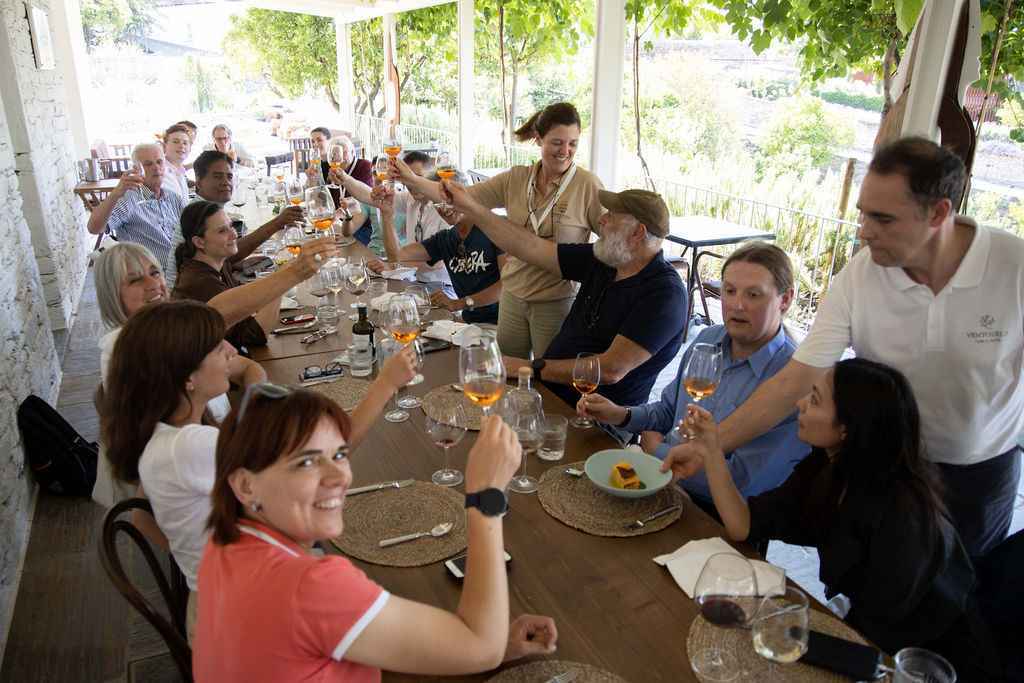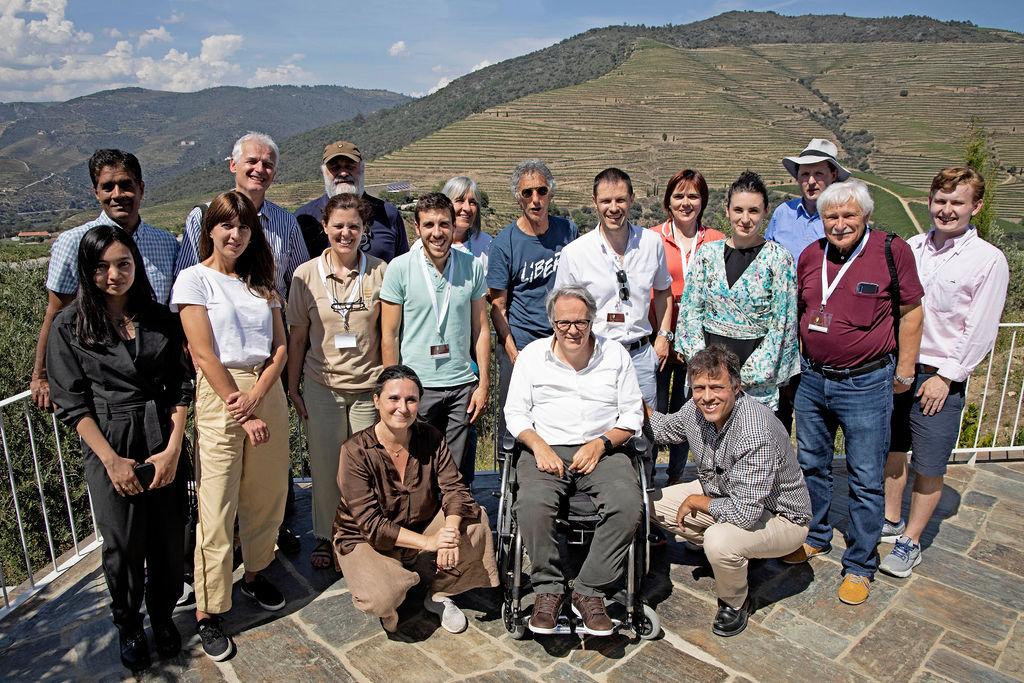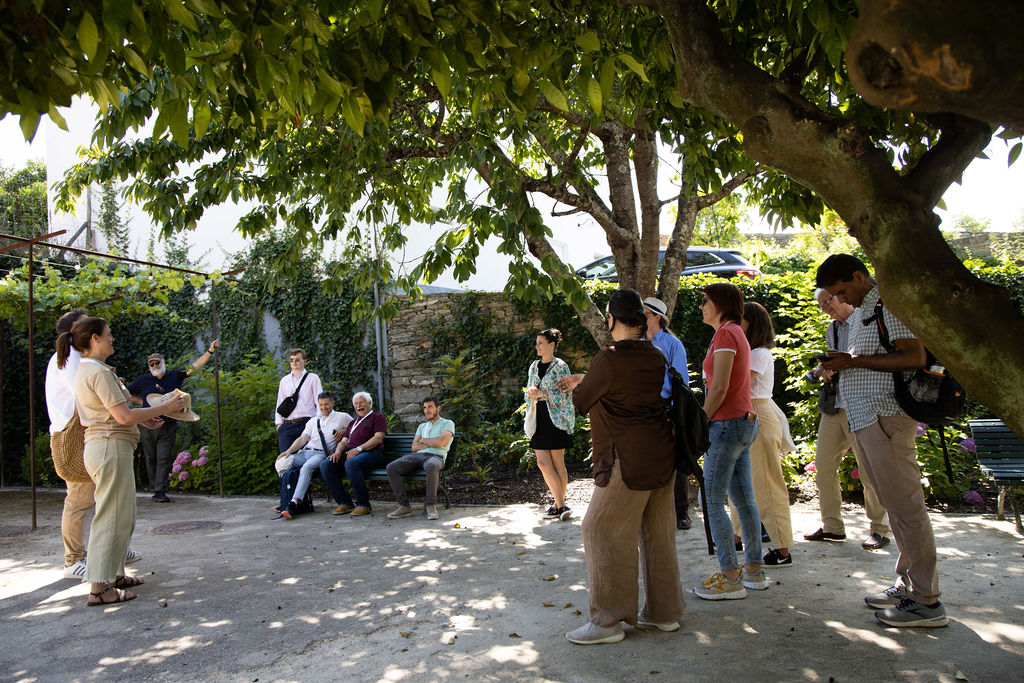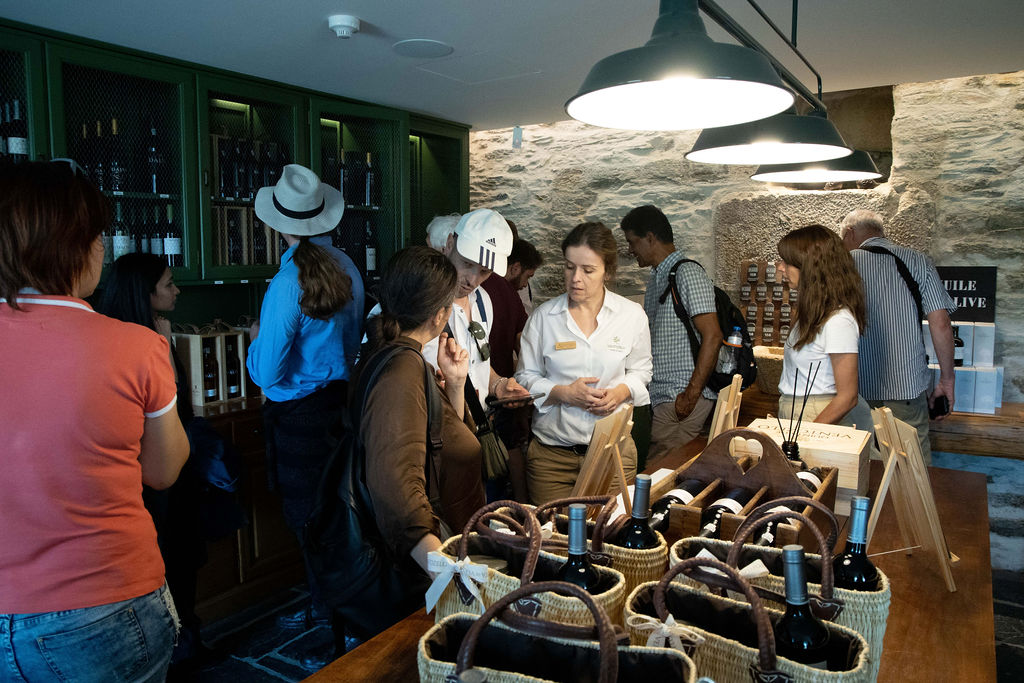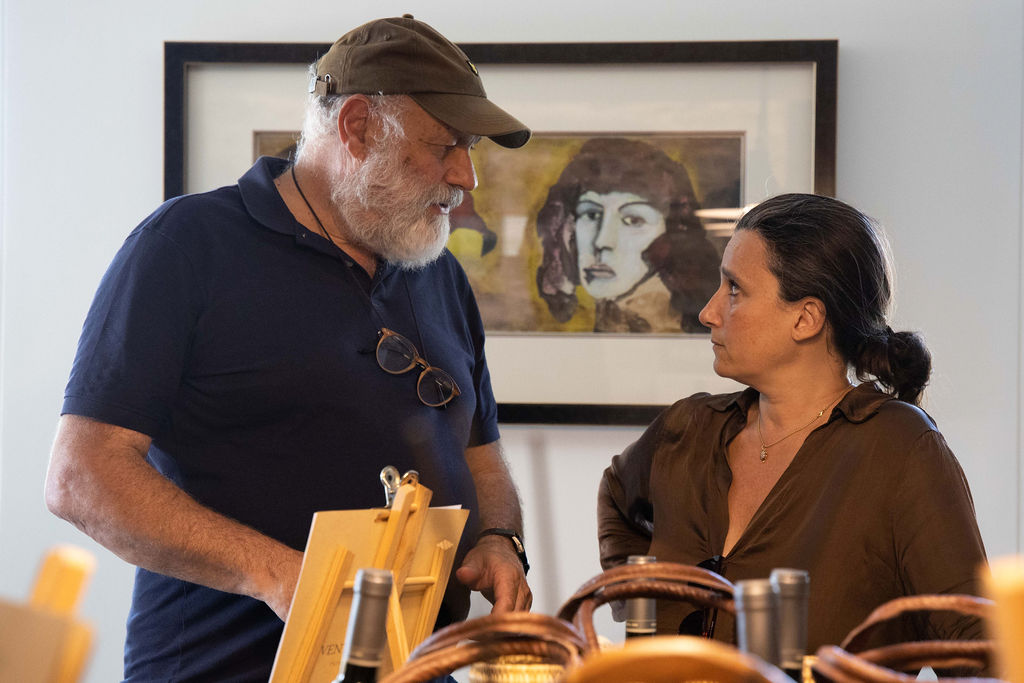The 3rd Science & Wine World Congress took place in Porto/Douro, Portugal from June 14 to 16, 2023. The focus of this congress was the sustainability of wine production and food systems in the Mediterranean region. We had a total of about 60 people from 9 different nationalities. The event featured esteemed speakers, including professors, researchers, and industry leaders, who shared their insights on various topics related to wine production and its impact on health, climate change, tourism, and more.
The session began with the presence of notable figures such as Professor Castro Lopes, Vice-Rector of the University of Porto, Professor Eduardo Rosa, Vice-Rector for Research at the University of Trás-os-Montes and Alto Douro, and Dr. Ricardo Valente, Councilor for the Department of Finance, Economic Activities, and Supervision of Porto City Council, among others. Their participation emphasized the significance of the congress and the commitment of various organizations to sustainable practices in the wine industry.
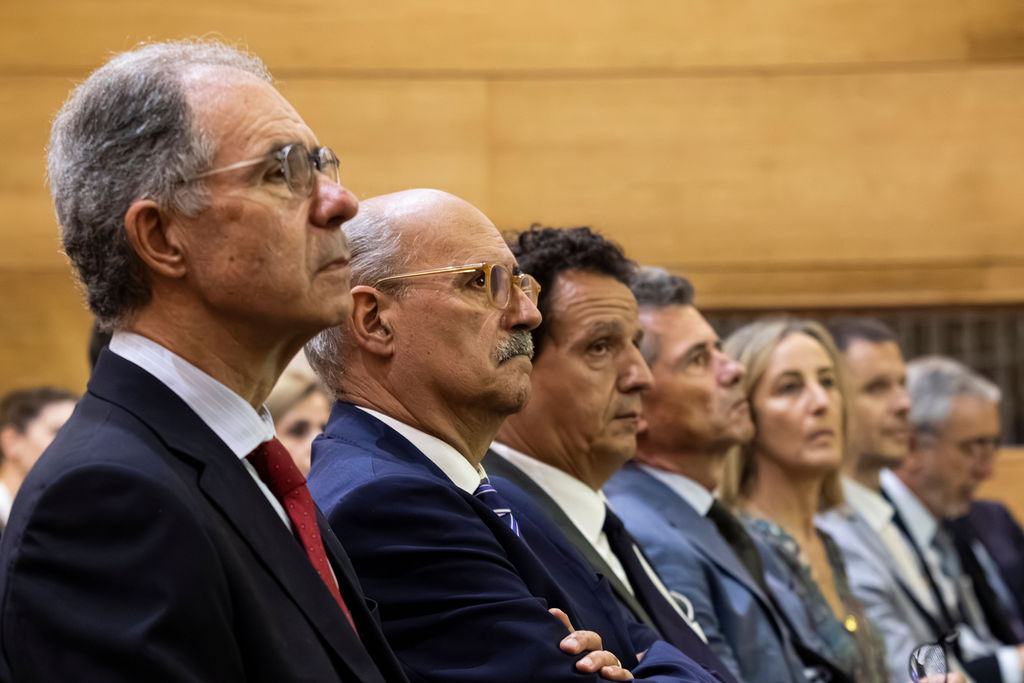
Open Session, 14 June 2023
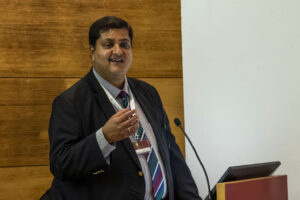
Sumantra Ray, NNEdPro Founding Chair and Executive Director
Several distinguished keynote speakers enriched the congress with their expertise and research findings. Sumantra Ray, a medical doctor and registered nutritionist, presented a lecture titled “Dietary Bioactives including Polyphenols and Cardiometabolic Risk: Rethinking Wine Beyond Alcohol…” He discussed the bioactive compounds found in wine and their potential health benefits, focusing on polyphenols and their effects on cardiovascular health. Over the past two decades, significant advancements have been made in the scientific understanding of how dietary bioactives, including polyphenols, affect blood vessel function and cardiometabolic risk. These findings can be combined with a multilevel research approach to investigate the association between polyphenol consumption and human health outcomes.This research has the potential to broaden the scope of scientific inquiry in the field of wine and contribute to a more comprehensive understanding of its health effects. By looking beyond alcohol and focusing on the bioactive compounds present in wine and related foods, new insights can be gained, leading to advancements in both scientific knowledge and public health.
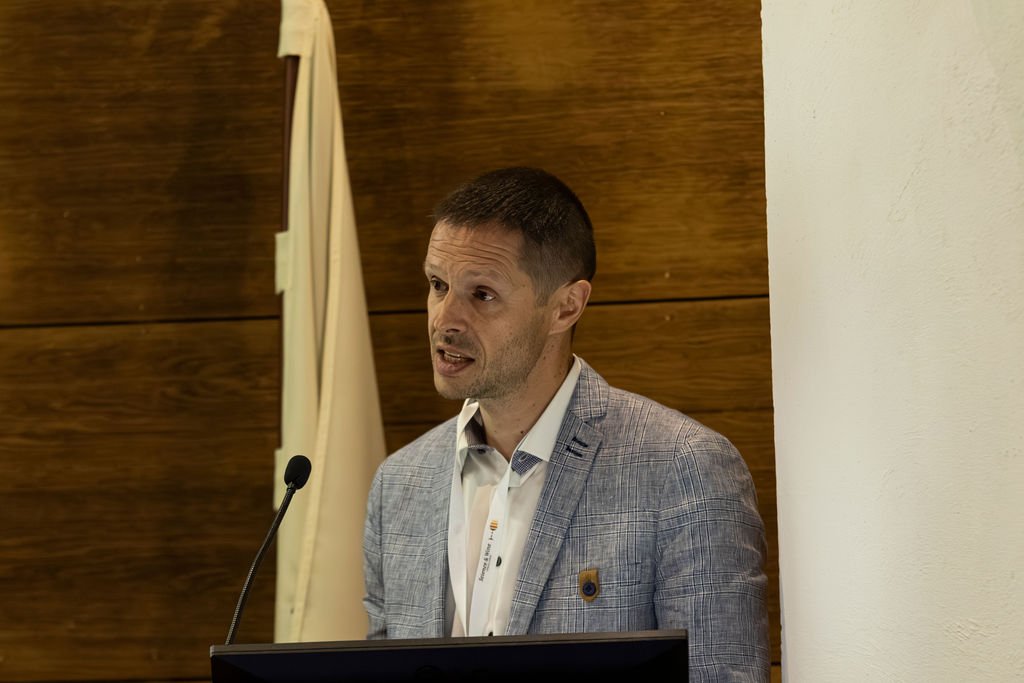
Dominique Delmas, University of Bourgogne, France
Dominique Delmas, a biochemistry professor at the University of Bourgogne in France, delivered a lecture titled “A new life of micronutrients from the Mediterranean diet in health: polyphenols from grape wine/omega-3 fatty acids association and red wine extract to counteract ocular degenerative diseases.” His research highlighted the potential benefits of polyphenols in preventing or improving vision in patients with ocular diseases, specifically Age-related Macular Degeneration (AMD).
Régis D. Gougeon, a chemistry and enology professor at the University of Bourgogne, presented on “The water status of the vine as an indicator of the evolution of grape quality in a context of climate change.” His study explored the impact of the vine’s water status on the physiological characteristics of the vine, metabolic composition of grapes, and wine quality.
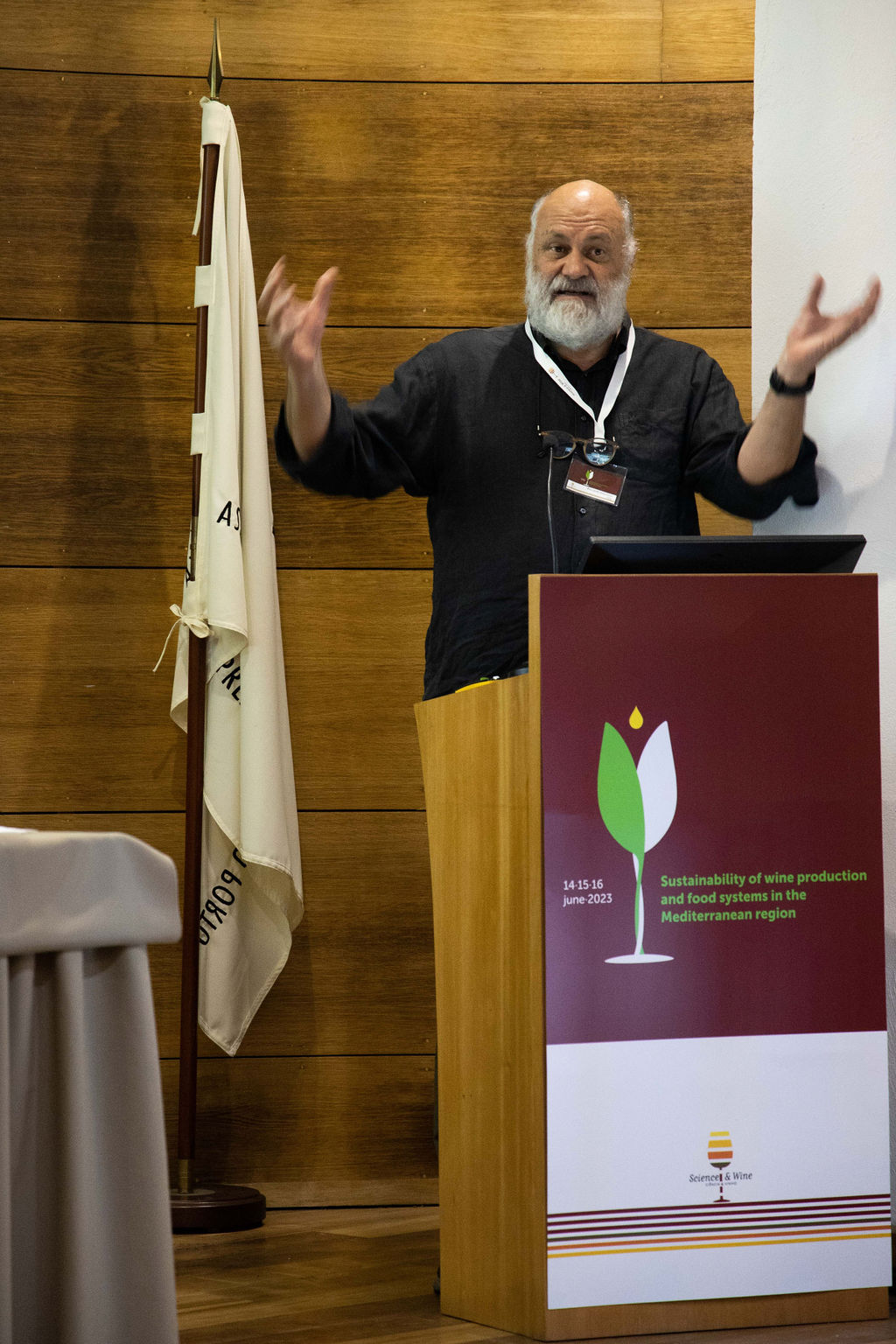
Riccardo Valentini, University of Tuscia, Italy
Riccardo Valentini, a physics graduate, and researcher, delivered a talk on “Climate change and the challenges of rapid ecological transitions in Mediterranean agriculture.” He emphasized the urgent need for action to address the adverse effects of climate change on agriculture, food supply chains, and the increasing global population. With a projected global population of over 9 billion by 2050, food supply chains will need to be reinvented to address the increasing demands, especially in mega-cities where food scarcity and accessibility will become significant issues. Simultaneously, climate extremes in certain regions, such as the tropics and parts of temperate regions, will adversely affect agriculture, forestry, and fisheries, leading to yield reductions. African countries may experience a 35% yield reduction, while globally, a 2% reduction per decade is expected, despite the growing food demand. Urgent action is needed at the governmental level (SDGs, Climate Paris Agreement), as well as within the food industry sector and among citizens. The transformation of society must aim to feed the additional 2 billion people expected by 2050, while also stabilizing global climate below 2.0°C (ideally 1.5°C) and reducing pressures on natural resources. Agriculture should play a crucial role in climate mitigation and adaptation strategies. The carbon stored in agricultural soil holds significant value and should be recognized monetarily and non-monetarily. Protecting and conserving carbon stocks becomes more important than solely focusing on carbon emissions. Furthermore, the Mediterranean region is experiencing the effects of climate change firsthand, with the average terrestrial temperature already exceeding 1.5°C. This intensifies summer heatwaves, droughts, and affects the temperature of the Mediterranean Sea, as well as the dynamics of weather patterns. Climatic scenarios predict that by 2030, the Mediterranean will surpass the 2°C threshold, leading to increased climate risks. The presentation raised questions about how the Mediterranean food system, from farm to fork, will adapt to these new scenarios. It explored the need for systemic and technological solutions to increase resilience. The role of innovation and science in facilitating this transition was also discussed. Additionally, Riccardo Valentini highlighted the links between these challenges and current European agricultural policies, emphasizing the need for alignment and adjustments to address the ecological transitions and climate change impacts effectively.
Elisabeth Kastenholz, an associate professor at the University of Aveiro, discussed “How visitors experience Portuguese wine routes? Lessons for more appealing and sustainable wine route development.” Her research explored visitor motivations, experiences, and loyalty in Portuguese wine tourism destinations, offering insights for the development of sustainable wine routes. Additional contributions were made by Ana Novo, who explored winery by-products as resources in the fight against antibiotic resistance, and Jorge Queiroz, who presented the “Manual of Sustainability in the Douro Wine Region.” These contributions addressed the environmental and economic aspects of wine production, highlighting the importance of sustainability and adaptation to climate change.
Bento Amaral, HumanWinety
The last day was dedicated to a visit to Quinta de Ventozelo, where the participants had the opportunity to attend a lecture by Bento Amaral on the topic of “Including and Humanising in the Wine and Hospitality Business.” Bento Amaral, the Wine Inspiring Executive of HumanWinety, addressed the current issue of the shortage of human resources in various European countries, particularly in the wine and hospitality sectors. These areas include wine tourism, wine merchants, sommeliers, sustainability, catering professionals, and back-office staff for hotels and restaurants, among other activities. Conversely, there is a segment of the potentially active population in Europe facing challenges in finding their professional place, such as individuals with disabilities, those in socially and financially disrupted situations, and refugees, among others.
In addition, the participants had the opportunity to enjoy a tour of the Quinta de Ventozelo, exploring its beautiful surroundings and experiencing the charm of the estate. They immersed themselves in the captivating vineyards, learned about the winemaking process, and appreciated the scenic views. The tour provided a deeper understanding of the winery’s history and its commitment to producing exceptional wines. After the tour, the participants were treated to a truly exquisite meal, carefully crafted to complement the wines produced at Quinta de Ventozelo. The culinary experience showcased the region’s gastronomic delights, featuring a combination of traditional flavors and innovative techniques. From delectable starters to mouthwatering main courses and irresistible desserts, every dish was a culinary masterpiece. The combination of the educational visit, the enlightening lecture by Bento Amaral, and the delightful tour and meal at Quinta de Ventozelo made for a memorable and enriching experience for all the participants. It was a day filled with learning, networking, and appreciation for the wine and hospitality industry, leaving everyone inspired and eager to contribute to making a positive impact in their respective fields.
Quinta de Ventozelo, 16 June 2023
We look forward to continuing to have the support of everyone in future events organized by Science & Wine. The success of our endeavors relies greatly on the engagement and participation of individuals like you who share our passion for the intersection of science and the world of wine. Through our events, we aim to foster knowledge exchange, spark innovative ideas, and promote collaboration among professionals in the wine industry, researchers, and enthusiasts. By bringing together diverse perspectives and expertise, we can collectively advance the understanding and appreciation of wine, while also addressing the challenges and opportunities that lie ahead. Your continued support and involvement are crucial in ensuring the continued growth and impact of Science & Wine. We encourage you to stay connected with us through our website, newsletters, and social media platforms to receive updates on upcoming events, initiatives, and opportunities for collaboration.Together, we can continue to explore new frontiers, push the boundaries of knowledge, and contribute to the advancement of the wine industry through scientific inquiry and collaboration. Thank you for your ongoing support, and we look forward to welcoming you to our future events.

